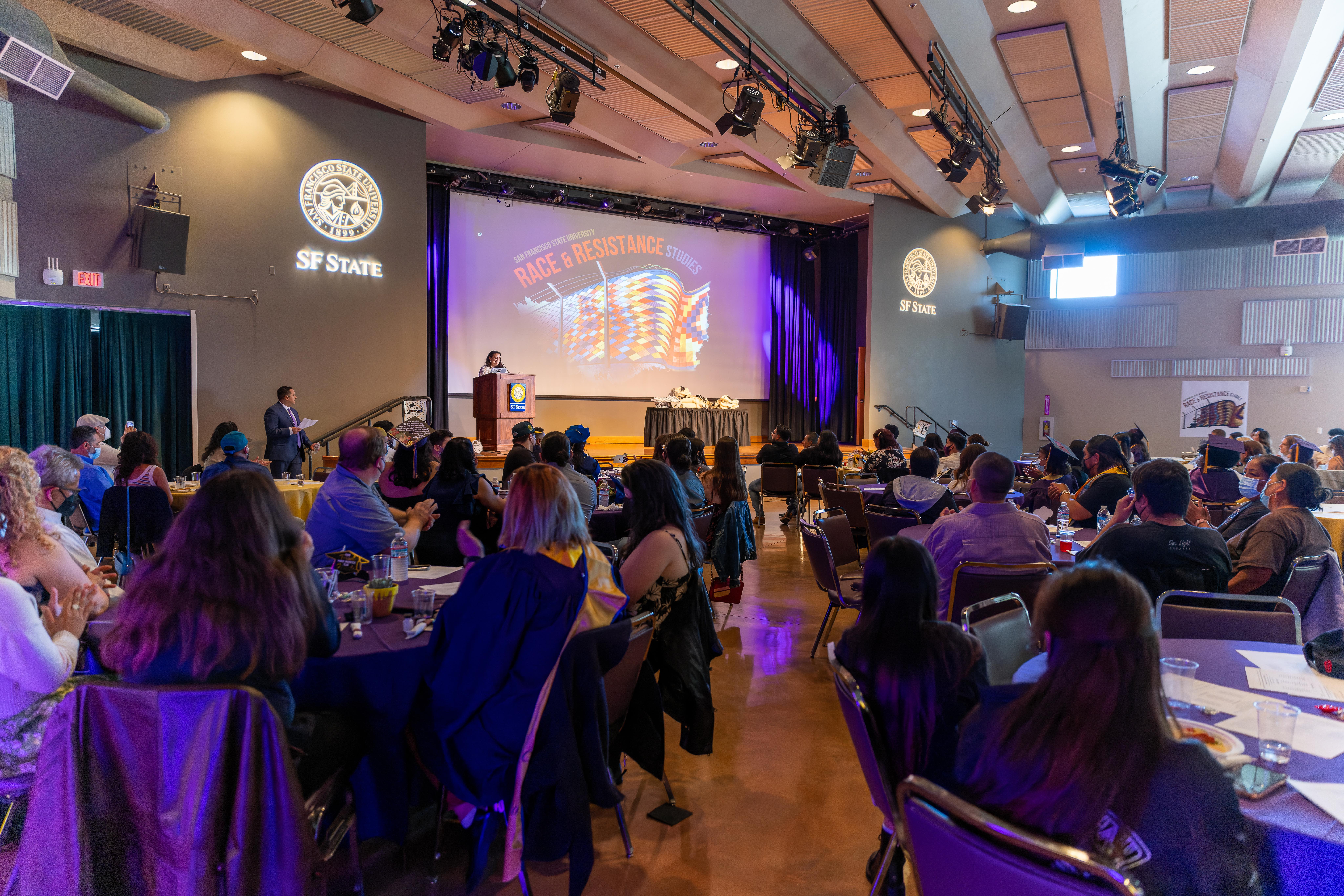Race and Resistance Studies (RRS) examines both the race-related processes that underlie many social problems and the multiple forms of resistance and struggle aimed at achieving racial social justice. Our analytical approach is comparative, relational, interdisciplinary and intersectional.
The program will:
- Identify the history, objectives, and philosophies of Ethnic Studies/Race and Resistance Studies.
- Describe historical, cultural, economic, and comparative approaches to the study of race, class, gender, nation and sexuality.
- Interpret cultural production by people of color and the ways that various forms of culture (literature, dance, murals, etc.) express agency of oppressed peoples and/or challenge social inequalities.
- Apply the concept of intersectionality to the analysis of gender-oppressed people of color, such as women of color, queers of color, and transgender people of color.
- Analyze social movements in the contestation of social hierarchies based on race, gender, sexuality, class and/or other social determinants.
- Apply principles of community-engaged scholarship and community service learning.

Degree Requirements
Total Units Required for Major: 36
- ETHS 300GW Writing in Ethnic Studies - GWAR
- RRS/ETHS 100 Introduction to Ethnic Studies
- RRS 240 All Power to the People: Comparative Freedom Movements of the "Sixties"
- RRS 250 Race, Ethnicity and Power in America
- Select One:
- RRS 280 Disrupting Science Fiction: Race, Gender and Alternative Futures
- RRS 290 Sounds of Resistance: Race, Rhythm, Rhyme and Revolution
- RRS 295 Race, Public Art and Creative Resistance
- Select One:
- RRS 365 Race and Comedy in the United States
- RRS 480 Youth Culture, Race and Resistance
- Select One:
- RRS/SXS 380 Queer and Trans Ethnic Studies
- RRS 571 Women, Race and Class
- RRS 590 Senior Capstone
- Select One:
- RRS/SOC 410 Grassroots Organizing for Change in Communities of Color
- RRS 694 Community Engaged Learning: Praxis in Race and Resistance Studies
At least six elective units should be upper division.
- Three RRS Courses
Bachelor of Arts students must complete 12 units of Complementary Studies outside of the primary prefix for the major and not cross-listed with the primary prefix for the major.
Students who complete two majors or a major and a minor automatically complete the Complementary Studies requirement.
Students in the Race and Resistance Studies major may also satisfy the Complementary Studies requirement by completing one of the following options:
- 12 units from one or more of these prefixes: AFRS, AIS, AA S, or LTNS (may not be from courses that are cross-listed with RRS).
- 12 units of a heritage, native, or foreign language.
- 12 units as partial completion of a minor.
- 12 units as partial completion of a certificate.
- 12 units from a study abroad program.
Upon consultation with an advisor, students may designate a coherent group of courses complementary to the major. For example, students may complete 12 units in a related area such as health disparities; genders and sexualities; revolutionary thinkers; cultural production and representation; social justice; civic & community engagement; fantastic futures; or religiosities and spiritual movements.
With the approval of an advisor in the major, courses that fulfill the Complementary Studies requirement may be lower- or upper-division units, resident or transfer units.